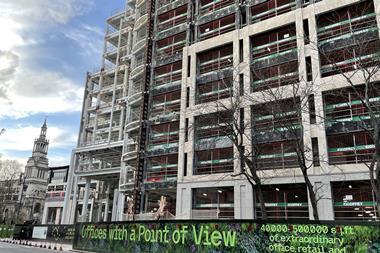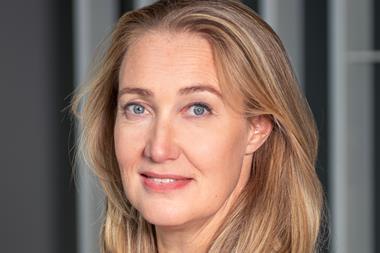Happy days. The sun has been shining, the Covid death rate has hit zero for the first time since the pandemic began and the Organisation for Economic Co-operation and Development (OECD) is forecasting that the UK economy will grow 7.2% in 2021, up from its prediction of 5.1% in March.

Everyone suspected China would be the first to bounce back from Covid and so it has proved. As we report in this week’s special international issue, huge new schemes are popping up all over the country. The Canadian market also appears to have emerged relatively unscathed from the pandemic.
Now, finally, the UK recovery appears to be gathering momentum. It helps that UK property is going for a song, meaning that while some sectors still face an uncertain future, they have retained – and even increased – their appeal among overseas investors.
They are not the only international investors bargain hunting in London’s office market, unfazed by the new hybrid home/office way of working many workers have embraced (although seemingly not 48% of business leaders). As Property Week went to press, Canadian investment giant Brookfield was poised to complete its acquisition of 30 Fenchurch Street from trustees of the Safra family for £635m in a deal that would reflect a yield of 4.5%. Meanwhile, German investor Union Investments has bought BT’s new global HQ One Braham from Aldgate Developments for more than £429m.
Distressed or unwanted retail assets are also high on the international investor shopping list, as Brookfield’s £330m acquisition of a portfolio of seven retail parks from Hammerson in April attests, and many would love to get into industrial, although good luck finding any bargains there.
Neither Covid nor Brexit have dented international investor appetite. The question now as we (hopefully) emerge from the pandemic is whether it has masked the impact of Brexit. Encouragingly, in the student market, which has been hit by Covid and Brexit, experts are not unduly concerned, with StuRents’ Richard Ward pointing out that international enquiries have risen and that EU students only make up a small portion of total demand.
In the industrial sector, the least affected by Covid but potentially the most by Brexit, fears over Brexit are also receding. When asked at the last Industrial & Logistics Conference & Showcase in November 2020 what would cause the greatest disruption to the supply, 83% of respondents said Brexit, while just 13% said Covid and 4% said the climate crisis. Fast-forward to this year’s conference and 90% of respondents say Covid while just 10% say Brexit and none the climate crisis.
Not everyone is sanguine about Brexit. Colliers’ Len Rosso highlights the “difficulty getting goods in and out of the country” and Demos’s Kitty Ussher expresses concern about the long-term impact. “Common sense would suggest that if you put up a barrier to trade, you’re going to get less trade,” she notes.
But that is something to worry about tomorrow. For now, international investors and the UK property industry alike are making hay while the sun shines.





























No comments yet